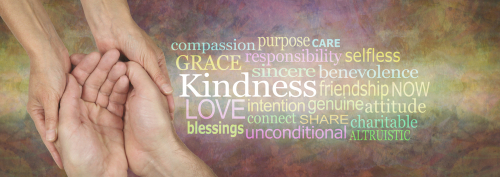Compassion is as essential to living as oxygen is to breathing. How many kind, altruistic, and heroic acts would have occurred throughout history if compassion did not exist?
Consider a world without the innumerable people who sacrificed their own lives to rescue others during times of conflict. Consider a world without people who have gone into burning buildings or performed other heroic rescues during times of adversity. It's inconceivable.
What Exactly Is Compassion?
Compassion is just being nice and pleasant in the face of adversity. Its strength lies in connecting us with what is difficult—it provides us an alternative to the customary turning away.
We begin with empathy—that sense of belonging. When we can see the universality of the human predicament, something lovely happens: the subtle cruelty of indifference is diminished.
Impact of Compassion
Giving and receiving compassion may both increase your psychological well-being, which is one of the reasons why it can be so beneficial. Being the receiver of compassion can help you in obtaining the assistance you need to get you through a tough period. But giving compassion to others can be just as satisfying.
According to one research study, the satisfaction that comes from living a life of purpose and meaning—one powered by kindness and compassion—plays a large role in improved mental and physical health.
How to Foster Compassion
Your interactions grow more personal when you commit to practicing compassion. Negative emotions will begin to fade. Your mind quiets down, enabling you to receive better inner direction. You get a strong sense of satisfaction knowing that you are helping to make the world a more loving place.
But how do we foster it in our daily lives? Here are a few pointers:
Learn to be Self-compassionate
Self-compassion is an important aspect of compassion that is sometimes overlooked. It's critical to understand why compassion is so crucial.
Self-compassion entails taking the initiative to alleviate one's own pain. It is prioritizing yourself and being nice and kind to yourself. It is avoiding circumstances and individuals who may cause you pain. It is much simpler to be compassionate toward others if you have established self-compassion.
Move Beyond your Self-reference
Many of us are taught the "it's all about me" mindset when we are young. In actuality, though, we are all one.
Experiment with changing your focus away from focusing just on how something impacts you. This does not imply giving up on yourself in order to be good to someone else – that is not self-compassion! However, it does imply broadening your consciousness to allow for the connectivity that links us all.
Practice Being Present
Try to be truly present with everyone you meet. Avoid looking at your phone, multitasking, gazing at the TV behind your lunch date, or paying attention to anybody other than the person with whom you are conversing.
Make direct eye contact. Take note of body language. See if you can get a sense of what the other person is thinking behind the words. When you are fully present, your presence is often seen as kind.
Takeaway
You now understand what compassion is. You get the significance of compassion and how to be compassionate. Today try to put this into action and see what kind of benefits you experience.












